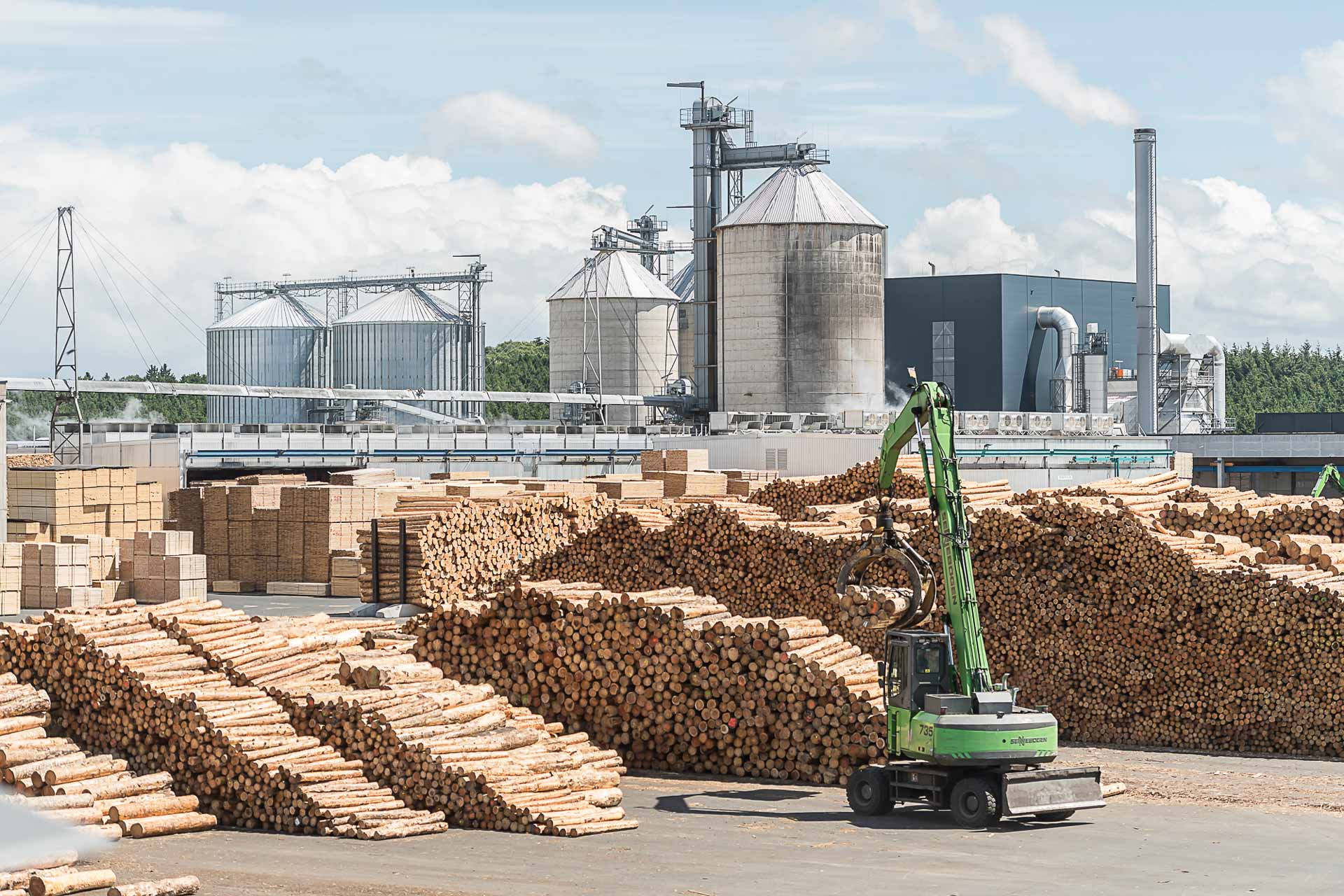06.06.2018
With trust comes responsibility

As in any other industry, the security of supply of raw materials is a prerequisite for the timber industry. Precisely for this reason Pfeifer designs its log purchasing as a fundamental strategic process. Insights into a field of activity characterised by emotions and the weather.
The Pfeifer Group plans to process some 3.4 million solid cubic metres of wood in 2018. Literally: tonnes of wood. Converted into logical facts that means some 125,000 lorry loads. On the other hand, Pfeifer receives more than 600,000 solid cubic metres by railway. This makes the Group one of the largest buyers of round logs in Europe. Pfeifer consciously chooses locations close to densely forested regions. Long transport routes between forests and plants would be neither economically nor ecologically viable. The processed wood comes exclusively from sustainably managed forests.
Europe’s forests still grow more wood than is harvested.
Round logs purchasing as an “open air” event
Europe’s forests still grow more wood than is harvested. Nevertheless, supply bottlenecks still occur in the timber industry. This is one of the reasons why Pfeifer permanently keeps a basic stock of 250,000 solid cubic metres in reserve. Only recently this safety buffer proved its worth. When a prolonged period of bad weather dominated large parts of Central Europe in the autumn of 2017, this led to an unforeseeable shortage of timber supplies with an impact on the entire industry. Large quantities had already been stored in the forests, which had to be felled in summer due to the bark beetle problem. Soils softened by rain combined with mild winter temperatures made harvesting conditions more difficult. Morass stopped the machines. This resulted in the traditional winter lumbering process running several weeks behind schedule.
The principle of success: Integrity
The trained forester knows how important the climate can be: “Forestry training alone doesn't give you the skills to become a good purchaser. But it helps a great deal to better understand the situation of the forestry managers,” Kogler states. At Pfeifer, some 30 experts maintain the company’s contacts to forest owners, small farms as well as “giants” such as the Austrian Federal Forestry Office in Austria or the State Forests in Germany. The purchasers constantly visit the suppliers in order to keep an overview. But also to maintain personal relations. “The forest is an emotional subject. Often a piece of forest has been planted by the owner’s grandfather. Now it is to be exploited – inevitably, there are feelings involved. You have to take this into account,” says the expert.
The founders established a culture of integrity with the round log suppliers which is extremely helpful.
Trust is the essential factor in the timber business which is characterised by inter-human relations to such a high extent. From the collection of wood in the forest, to the determination of quality and quantity, to invoicing – wood purchasing has many aspects that could theoretically lead to conflicts. In practice, however, Pfeifer has enjoyed an excellent reputation among its suppliers for decades. “Back then, the founders established a culture of integrity with the round log suppliers which is extremely helpful. Down to its very core, our company is characterised by the belief that agreements will hold and that quality as well as payments are to be processed correctly. Even if conditions are bad,” says Kogler, hinting at the summer of 2017. When an oversupply of wood suddenly caused prices to plummet, the Pfeifer Group remained true to its existing purchase commitments.
Ingomar Kogler
head of round wood purchase
“A tree takes 100 years to be ready for harvest. This is a period of time in which a lot of trust is built up, but can also be lost. It does not pay off in the long term to jeopardise the security of supply because of short-term profit maximisation”
In the forest, traditional values prevail. Pfeifer’s purchasers and logisticians also maintain established relationships with a network of regional log freighters. Contrary to the trends in the transport industry, international drivers can hardly cope with such loads. On forest roads the wisdom of all common navigation systems ends.
Ingomar Kogler
Born in Metnitz (Carinthia). Having graduated from Höhere Bundeslehranstalt für Forstwirtschaft (Forestry College), he took the federal exam to become a forester at the Austrian Federal Forestry Office. At Binder, he served as an IT officer for years. As a project manager, he then developed an industry software for a large German software developer. Kogler joined Pfeifer to implement a round log software as the IT manager. In 2009, he became the round log purchasing manager for the Pfeifer Group’s German locations. In 2010, Kogler became the head of round log purchasing for the entire Pfeifer Group. He serves as a member of the management of Pfeifer Holz GmbH & Co KG in Imst and Kundl.